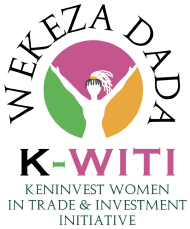German President Frank-Walter Steinmeier on Monday held bilateral talks with President Uhuru Kenyatta on the second day of his State visit to Kenya at a time companies in the European country are facing a challenging environment.
Mr Steinmeier who was hosted by Mr Kenyatta at State House vowed to push for economic and security co-operation with Kenya. His visit comes at a time when German companies in Kenya are battling headwinds arising from increased competition from Chinese firms and German trade with Kenya is dwindling.
“The aim of the visit is to lend fresh impetus to the good bilateral relations between Kenya and Germany and to discuss the country’s economic prospects as well as issues concerning the future which are of importance to both countries,” said the German Embassy in a statement ahead of the visit.
During the bilateral meeting led by the two presidents, Germany announced that the two nations will partner in the transfer of technical skills and education focusing on applied sciences.
Under the deal Germany will assist Kenya in setting up an applied sciences university. Germany will also support technical and vocational training in the country, said President Steinmeier.
“German universities can help Kenya set up an applied sciences university,” the German leader said during the joint press conference at State House, Nairobi.
About a 100 German multinationals have operations in Kenya. They include commercial and industrial refrigeration and air conditioning technologies firm Bitzer, consulting firm Rödl & Partner, Chemicals firm BASF, Allianz Insurance among others.
Mr Steinmeier first visited Kenya in 2015 as foreign minister. During his current visit, German business firms will be eyeing to ink new deals with their Kenyan counterparts.
Mr Kenyatta called for German support in Kenya’s bid for a non-permanent seat on the United Nations Security Council during elections scheduled for June this year.
“We will stand for the collective will of the international community. Peace and security are at the centre of our policy,” Mr Kenyatta said as he urged the German government to ensure that Kenyan immigrants are shielded against laws that forbid dual citizenship. Germany is a growing source of tourists who visit Kenyan game parks and beaches in their tens of thousands every year.
In 2019, Kenya’s exports to Germany stood at Sh11.28 billion a marginal rise from Sh11.16 billion in 2018. On the other hand Germany’sexports to Kenya fell by Sh2.2 billion to Sh44.4 billion from Sh46.6 billion in 2018.
A report last year cited Germany as one of the top destination for Kenyans travelling to European Union countries on a Schengen visa.
The German Embassy in Nairobi received a total of 6,142 Schengen visa applications in 2018, out of which 5,136 were approved.
A Schengen visa is a short-stay permit that allows a person to travel to any members of the Schengen area, for up to 90 days for tourism or business.
Source: Business Daily Newspaper.








